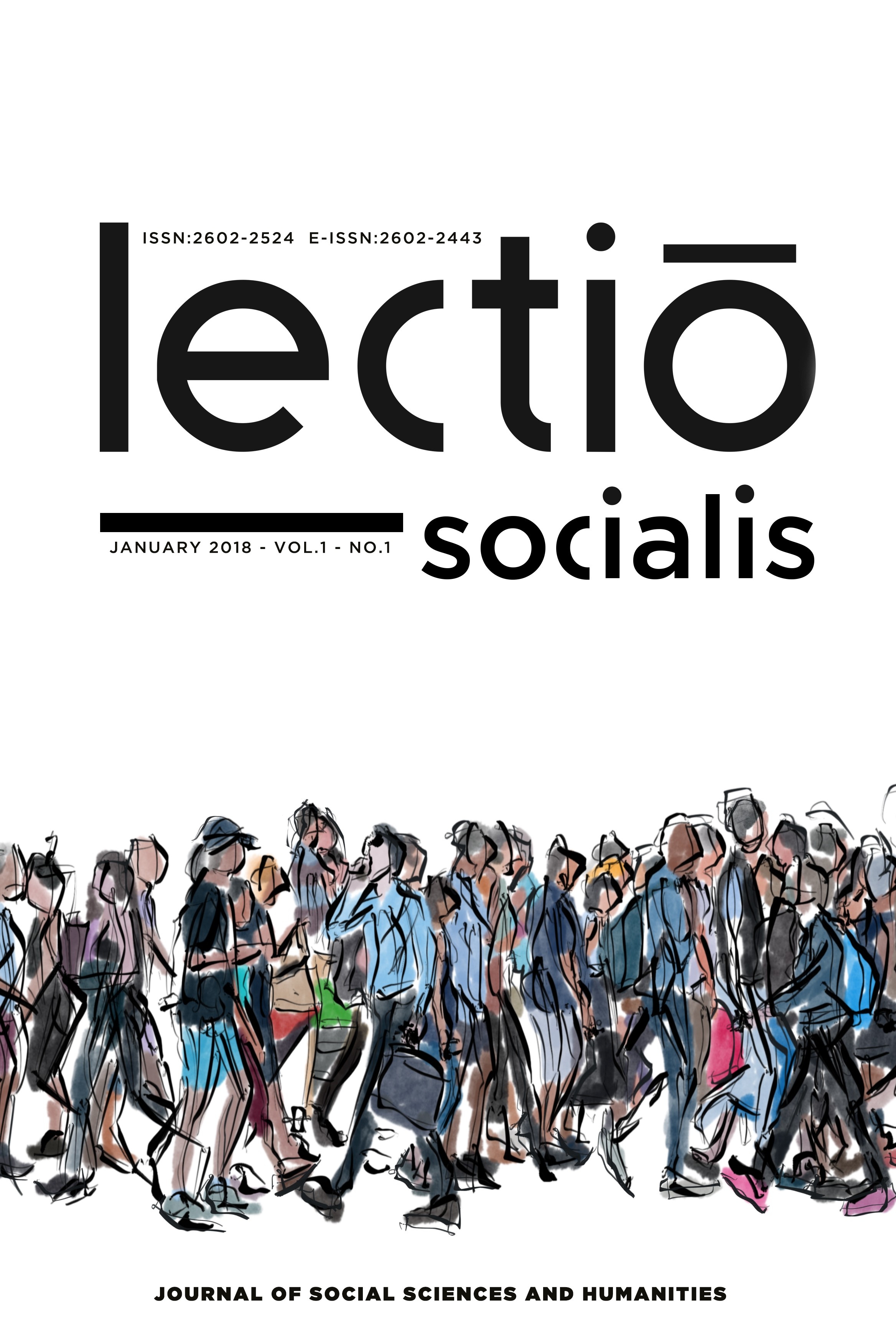TSK ve AB Reformlarını Yeniden Gözden Geçirmek: 1999-2005
Türk siyasi hayatında ordunun kuvvetli rolü Türkiye Cumhuriyeti’nin kurulmasından beri Türk siyasal sisteminin önemli özelliklerinden birisidir. Silahlı Kuvvetler üç darbeye şahit olan çok partili dönemde Türk siyasi sisteminde önemli ayrıcalıklar elde etmiş ve otonomisini genişletmiş- tir. Bununla birlikte AB’nin 1999 Helsinki Zirvesi ordunun statüsünde paradigmatik bir değişiklik meydana getirerek güç dengesini siviller lehine değiştirmiştir. Bu makale Türk siyasetinde ordu- nun değişen rolüne katkı yapan gelişmelerin üzerinde durmaktadır. Bir dizi faktörün ordunun AB demokratikleşme reformlarına karşı izin veren bir tutum izlemesinde rolü olduğunu ileri sürmekte- dir. Bunlar Türkiye’nin AB aday ülke ilan edilmesinden sonra Türkiye’nin AB üyelik perspekti nin hız kazanması, AKP hükümetinin reformist ve uzlaşmacı tutumu, Genelkurmay Başkanı General Hilmi Özkök’ün Kemalizm’in liberal bir şeklini benimsemesi, siyasi sistemde ordunun vesayet ro- lünün korunması ve demokratikleşmeye uygun bir siyasi sistemin bulunmasıdır.
Anahtar Kelimeler:
AKP, ordu, AB demokratikleşme reformları
Revisiting the Turkish Military and European Union Reforms: 1999-2005
The military’s omnipotent role in Turkish political life following the establishment of the Turkish Republic developed into one of the most significant characteristics of the Turkish political landscape. The armed forces gained significant privileges and strengthened their autonomy within the multi-party era, which saw three coups. However, the EU’s 1999 Helsinki Summit brought about a paradigmatic change in the status of the military, shifting the balance of power in favor of civilians. This piece throws light on the developments that contributed to changing the role of the military in Turkish politics, and details the many factors that contributed to its more receptive approach to the EU democratization reforms. These include the momentum gained in Turkey’s EU accession bid after its declaration as a candidate country in 1999, the AKP government’s reformist and conciliatory stance, Chief of Staff General Hilmi Özkök’s adoption of a more liberal version of Kemalism, the maintenance of the guardianship role of the military in the political system, and the emergence of a political environment that was conducive to democratization.
Keywords:
the AKP, the military, EU democratization reform,
___
- Berkan, İ. (1999). “Kıvrıkoğlu Herşeyi Anlattı” (Kıvrıkoğlu told everything). Radikal. [09.10.2004].
- Dekmejian, R. H. (1982). Egypt and Turkey: The Military in the Background, in R. Kolkowitcz and A. Korbonski (eds.). Soldiers, Peasants, and Bureaucrats: Civil-Military Relations in Modernizing Societies. Boston and Sydney: George Allen and Unwin. pp. 28-51.
- European Commission. (1998). Regular Report on Turkey’s Progress towards Accession.
- European Commission. (1999). Regular Report on Turkey’s Progress towards Accession.
- European Commission. (2000). Regular Report from the Commission on Turkey’s Progress towards Accession, Brussels, November 8, 2000.
- European Commission. (2001). Regular Report on Turkey’s Progress towards Accession. Brussels. 13.11.2001. SEC(2001) 1756.
- European Commission. (2002). Regular Report on Turkey’s Progress towards Accession. Brussels. 9.10.2002. SEC(2002) 1412.
- European Commission. (2003). Regular Report on Turkey’s Progress towards Accession.
- European Commission. (2004). Regular Report on Turkey’s Progress towards Accession. Brussels, COM (2004) 656 final.
- European Commission. (2005). Progress Report, (Com (2005) 561 final), Brussels, 9.11.2005, SEC (2005) 1426.
- Heper, M. (1985). The State Tradition in Turkey. Walkington: The Eothen Press.
- Heper, M. (2005). “The Justice and Development Party Government and the Military in Turkey”. Turkish Studies. Vol. 6, No. 2. Hürriyet. (2004a). “Özkök: Sık sık gündeme gelmek istemiyoruz” (We do not want to come to the agenda often). Hürriyet. [09.10.2004].
- Hürriyet. (2004b). “Lozan’dan geri adım atmayız” (We do not step back from Lausanne). Hürriyet. http://www.hurriyet.com.tr/lozandan-geri-adim-atmayiz-270005. [09.10.2004].
- Jenkins, G. (2001). Context and Circumstance: The Turkish Military and Politics. Adelphi Paper 337. London: IISS.
- Milliyet. (2000). “MGK genişleyebilir” (the MGK could enlarge). Milliyet. http://www.milliyet.com.tr/2000/07/25/siyaset/siy00.html. [09.10.2004].
- National Report. (2004). Turkey, Eurobarometer 62.
- Özel, S. (2004). “Turkey’s Top General Encourages Acceptance of Reforms”. Eurasia Insight. [10.10.2004].
- Radikal. (2000). “Kürtçe TV’ye fren” (Brake to Kurdish TV). Radikal. [08.10.2004].
- Radikal. (2002). “Orgeneral Kılınç: AB bize uymaz” (General Kılınç: the EU does not suit us). Radikal. http://www.radikal.com.tr/politika/orgeneral-kilinc-avrupa-bize-uymaz-626214/. [08.10.2004].
- Şafak, E. (2004). “Yılın Eylemi” (The Action of the Year). Sabah. http://arsiv.sabah.com.tr/2004/08/10/////yaz08-50-125-20040805.html. [07.10.2004].
- TSK. (2003). “Genelkurmay II. Baskani Yaşar Büyükanıt’ın Konuşması” (Speech of the Second Head of the Turkish General Staff Yaşar Büyükanıt). http://www.tsk.mil.tr. [06.04.2004].
- Başlangıç: 2017
- Yayıncı: Emrah Konuralp
Sayıdaki Diğer Makaleler
Bush ve Obama Dönemlerinin Terörizme Karşı Politikalar Üzerinden Karşılaştırması
Tanzimat'tan Erken Cumhuriyet Dönemine Türk Sosyopolitik Yaşamında Öne Çıkan Kadınlar
TSK ve AB Reformlarını Yeniden Gözden Geçirmek: 1999-2005
Geleneksel ve Elektronik Ağızdan Ağıza İletişim Yöntemlerine Genel Bir Bakış
